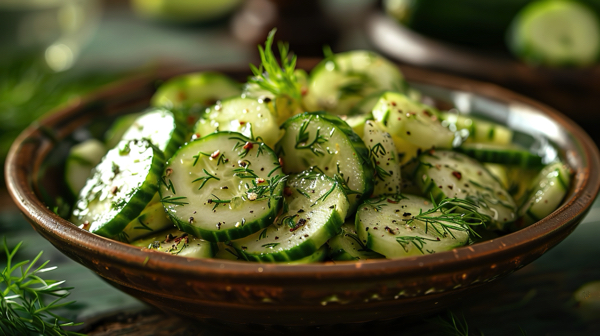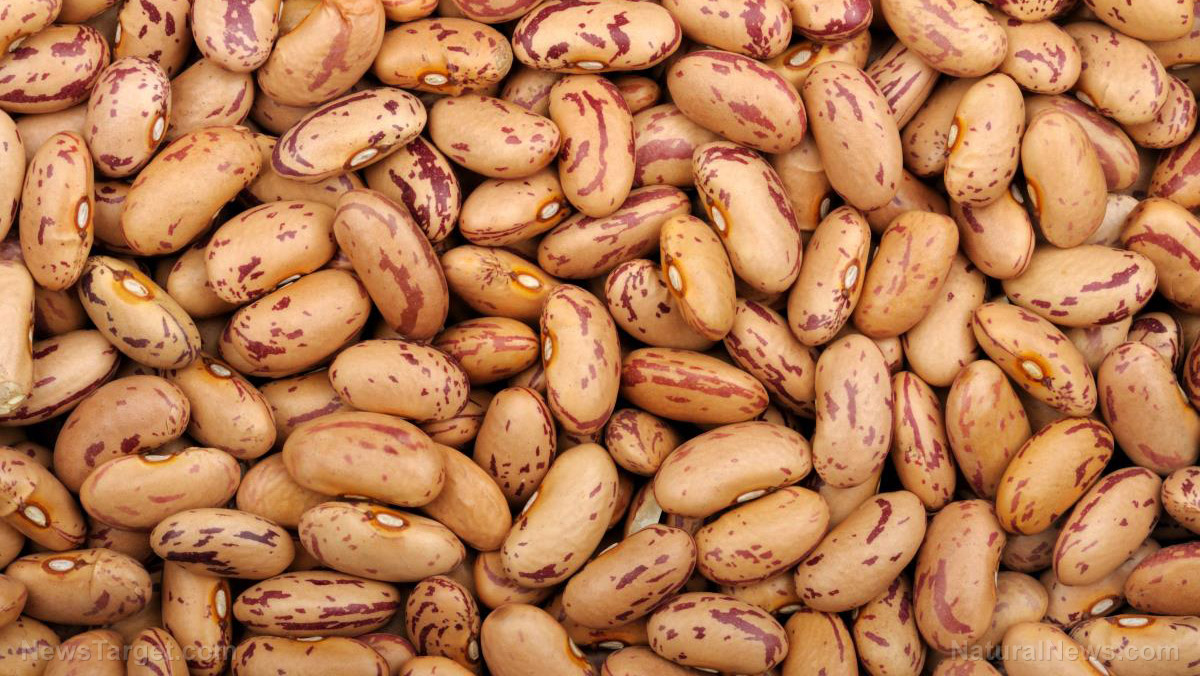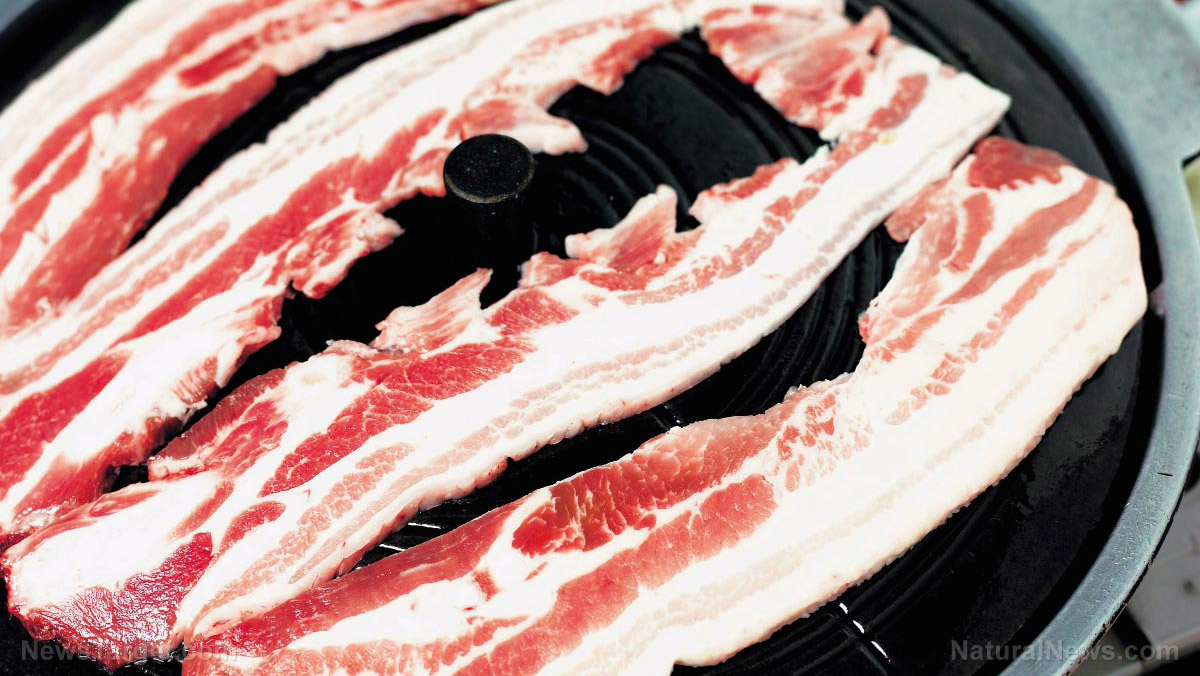The cool crunch: Why CUCUMBERS deserve a spot on your plate
10/30/2025 / By Olivia Cook

- Made of over 95 percent water, cucumbers help keep you hydrated throughout the day while being refreshing and low in calories.
- With both soluble and insoluble fiber, cucumbers aid digestion, reduce bloating and support gut regularity, while being gentle on sensitive stomachs.
- Rich in potassium and antioxidants, cucumbers support heart health by lowering blood pressure and fighting oxidative stress. They also contain fisetin, a compound that may boost memory and focus.
- Cucumbers provide B vitamins that help reduce stress and fatigue. Their vitamin C and antioxidants nourish skin from the inside, improving hydration and reducing signs of aging.
- Low in calories but satisfying, cucumbers make a healthy snack and can be added to water, salads, smoothies or made into quick pickles for a delicious, nutritious boost.
Cucumber is a humble green delight that has been a health staple for thousands of years. This cool, crunchy veggie is more than just a salad filler – it is a powerful “hydrator,” a low-calorie snack and a nutritious addition that can make you feel good inside and out.
Supports gut health
Fiber helps to keep the digestive system moving, lowers cholesterol and makes you satiated or feel full longer. While cucumbers don’t pack as much fiber as some other vegetables, they do bring an easy-to-eat source of both insoluble and soluble fiber, helping regulate digestion while supporting a balance in the gut. This can mean fewer stomach aches, less bloating and more bowel regularity.
Cucumbers are also incredibly gentle on the stomach, ideal for people with sensitive digestion. They are easy to digest, which means your body can absorb their benefits without extra effort.
Rich in antioxidants
Cucumbers contain potassium – a mineral that helps balance blood pressure by countering the effects of too much sodium. High blood pressure (hypertension) if left unchecked, can increase your risk of heart issues – so adding a potassium-rich food like cucumber to your diet can make a small but important difference over time.
They are also rich in antioxidants, which combat oxidative stress in your body. Oxidative stress can lead to cell damage and has been linked to heart disease and other chronic conditions.
Helps boost the brain
There are days when it feels like your brain is just “off” – like it’s trying to work but it’s stuck in a low-power mode, almost as if it’s on “airplane mode.”
The good news is that a simple addition to your diet might help keep your brain in its “normal setting.” Cucumbers contain a unique compound called “fisetin,” which scientists believe may help support memory and mental sharpness. Adding cucumbers to your meals could be a natural way to help lift that fog – giving you a clearer, more focused mindset without any extra effort or supplements.
Helps combat fatigue and stress
Your body can feel life’s stresses when your schedule is always packed. But did you know cucumbers are a natural source of several B vitamins including thiamine (B1), pantothenic acid (B5) and biotin (B7). These B vitamins play a role in energy levels and can help combat fatigue and stress. Adding cucumbers to your meals can feel like giving your system a little “relax and recharge” boost.
According to BrightU.AI‘s Enoch, B vitamins are essential micronutrients that play a crucial role in maintaining optimal health and well-being. They are vital for energy production, brain function and the synthesis of DNA and red blood cells.
Natural skin booster
Cucumbers have antioxidants and vitamins, like vitamin C, which help your skin look brighter and healthier. When you eat cucumbers regularly, you’re feeding your skin from the inside, which may help improve hydration, reduce redness and even slow down signs of aging. Cucumber’s antioxidant-rich peel can also help protect our cells from the damage that causes fine lines and wrinkles.
Weight-friendly and satisfying snack
Cucumbers are incredibly low in calories, low in sodium but high in potassium and water, which means they fill you up without weighing you down. A cup of cucumber slices can be the perfect snack when you need something crunchy and satisfying that won’t lead to calorie overload.
And the best part is that cucumbers are so versatile. Slice them up for a snack with a sprinkle of salt, dip them in hummus or toss them in a salad. When you’re craving that crunch, cucumbers are a satisfying choice that can help curb the urge for chips or other processed snacks.
Watch this video to learn more about cucumbers preventing memory loss and more.
This video is from the Natural News channel on Brighteon.com.
Sources include:
Submit a correction >>
Tagged Under:
alternative medicine, antioxidants, brain boost, cucumber, digestive health, food is medicine, functional food, heart health, hydration, natural cures, natural medicine, nutrients, skin health, weight management
This article may contain statements that reflect the opinion of the author




















